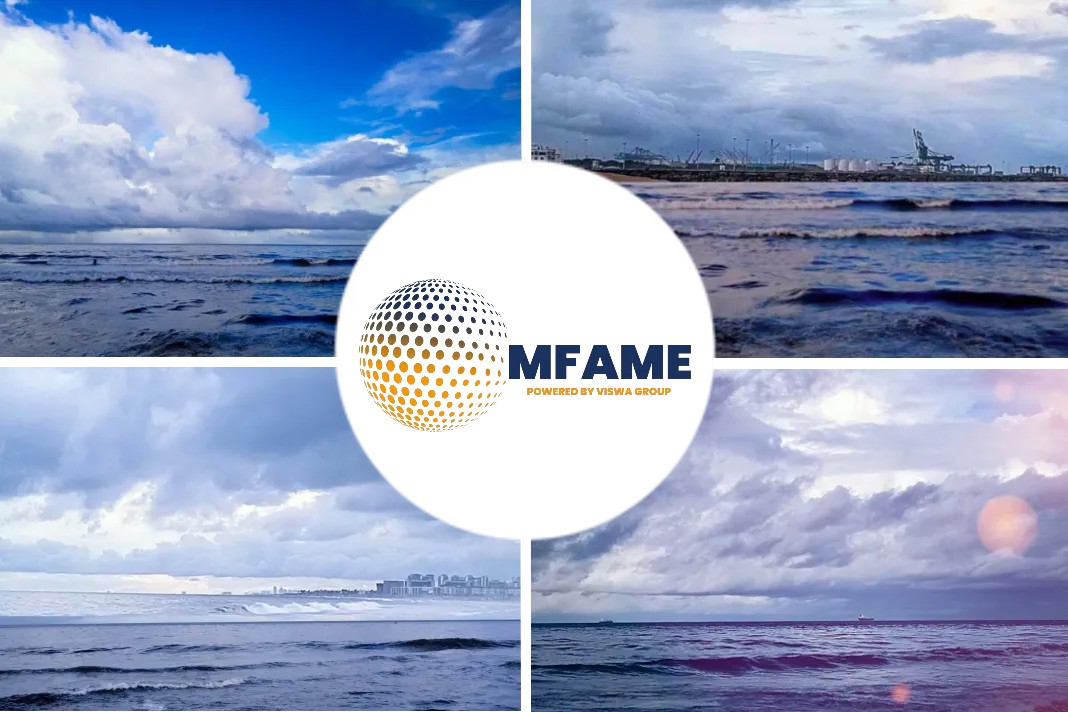
- With more than 55,000 merchant ships that trade internationally, maritime shipping accounts for about 3 percent of all global CO2 emissions.
- IMO has enacted new rules that now make it mandatory for all ships to measure energy efficiency and initiate the collection of data for reporting carbon emissions.
- The faster and more efficient routing is more fuel-efficient and also keeps crews, cargo, and equipment safe from extreme weather.
Extreme weather resulting from warming ocean temperatures are becoming a top challenge for shipping industry executives. While the extreme weather can influence port activity and result in lost or damaged cargo, the environmental impact of shipping on the ocean temperatures cannot be ignored.
Global CO2 emissions
With more than 55,000 merchant ships that trade internationally, maritime shipping accounts for about 3 percent of all global CO2 emissions.
For most companies, supply chains typically have the biggest environmental impact of any part of a business, and beginning this year, there are two new regulations designed to make the shipping industry more environmentally friendly.
New IMO shipping rules
The International Maritime Organization (IMO) has enacted new rules that now make it mandatory for all ships to measure energy efficiency and initiate the collection of data for reporting carbon emissions.
This is becoming increasingly important as a recent report warns of the importance of limiting the planet’s warming to 1.5 degrees C to hold off extreme climate disruptions that could exacerbate global conflict and drought among other issues.
These more stringent sustainability regulations have shipping companies looking closely at their operations, including which ships are compliant with the new regulations and which are not.
And while there may be some uncertainty about the impact of these regulations on capacity and other operational decisions, the long-term environmental benefits are important for the industry to embrace.
CII establishment
With this new regulation, IMO has established the carbon intensity indicator (CII), which assigns each ship a rating between A and E, where A is the best.
Any ship with subpar ratings (below C) needs to have an action plan demonstrating how it will meet a C rating or higher.
Meeting these requirements will impact how shipping companies manage operations and could potentially require significant investment, like reducing ship speed to lower emissions, conducting hull cleaning to reduce drag, installing low-energy light bulbs, or using solar/wind auxiliary power for onboard services.
The potential investments in older ships could be significant, as they weren’t designed with carbon compliance in mind.
As shipping companies work to comply with these new regulations, the importance of using route optimization and weather data will grow.
A well-planned route that avoids extreme weather events could be the difference between a passing and failing CII grade.
Route optimization
Route optimization is all about bringing together the widest range of data points possible and using them correctly.
Data points can include a wide variety of information including port information, along with weather, vessel, routing, and performance data.
Choosing the right routes is important for both efficiency and achieving an acceptable CII rating. In 2015, the IMO estimated that performing weather routing can reduce fuel consumption by up to 3 percent.
Weather-optimized vessel routing also can help minimize distance sailed, both critical inputs to CII calculations.
By using both real-time weather data and long-term forecasts, ship operators can better manage carbon emissions by plotting the most efficient paths through or around extreme weather.
Extreme weather
Having better vessel and route-specific data is critical for compliance with the new CII regulations.
While these new IMO regulations will drive ship operators to achieve a good rating, the weather and other data needed to comply offers other benefits too.
The faster and more efficient routing is more fuel-efficient and also keeps crews, cargo, and equipment safe from extreme weather.
But access to better, timely data and intelligence to support more efficient fleet, voyage, and vessel management makes sense on every level.
Did you subscribe to our Newsletter?
It’s Free! Click here to Subscribe.
Source: Forbes






















Hello, Neat post. There is a problem along with your web site in internet explorer, could test this… IE still is the market leader and a large component of other folks will pass over your wonderful writing due to this problem.